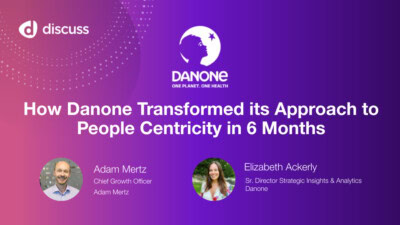Market Research Agency: What They Do and Why You Need Them

In a rapidly evolving business landscape, operating without a clear understanding of your market is like navigating uncharted waters in the thick of a storm. A Market Research Agency, with its refined tools and unrivaled expertise, can illuminate your course, promise smooth sailing, and save your ship from capsizing. But what exactly does a Market Research Agency do? More importantly, why would your business need one? Dive into this comprehensive guide and discover how employing proficient market research can catapult your venture to the forefront of innovation and success.
A market research agency is a specialized company that offers valuable research services to clients, aiding them in making informed business decisions. These agencies employ a team of skilled researchers who utilize various methodologies to gather data, conduct analysis, and provide insights into market trends, consumer behavior, and competitor strategies. Market research agencies may offer both qualitative and quantitative research, consulting services, workshop facilitation, and more. Their expertise helps organizations understand their target audience, evaluate business opportunities, and develop effective marketing strategies for maximum success.
What is a Market Research Agency?
In today’s fast-paced and competitive business environment, it is paramount for companies to have a deep understanding of their target market, customers, and competitors. This is where a market research agency comes into play. A market research agency is a specialized firm that offers a wide range of services to help businesses gather valuable insights and make informed decisions.
Unlike in-house research teams, market research agencies provide an external perspective and expertise, giving them a unique advantage in objectively analyzing data and providing actionable recommendations. These agencies consist of a group of researchers with diverse backgrounds, extensive experience, and specialized knowledge in various industries. They work closely with clients to understand their specific research goals and tailor methodologies accordingly.
For instance, imagine a company launching a new product in the global tech industry. They might seek the assistance of a market research agency to conduct comprehensive market analysis, competitor assessments, and customer surveys. The agency’s team of experts can design and execute studies using advanced techniques such as focus groups, online surveys, ethnographic research, and more.
Now that we have a clear understanding of what a market research agency is let’s delve into the functions and services they offer.
Functions and Services They Offer
Market research agencies offer an array of functions and services designed to collect, analyze, and interpret relevant data. Let’s explore some key offerings:
- Qualitative Research: This approach focuses on gathering in-depth insights into consumer behavior, attitudes, motivations, and preferences. Qualitative methods include techniques like interviews, observations, focus groups, and case studies. These methodologies provide rich contextual information that helps businesses understand the “why” behind consumer decisions.
- Quantitative Research: In contrast to qualitative research, quantitative methods aim to collect numerical data that can be measured statistically. Surveys conducted through online panels or telephone interviews are common quantitative research techniques. By analyzing large datasets, market research agencies can identify patterns and trends among target audiences, enabling businesses to make data-driven decisions.
- Consulting Services: Market research agencies often provide consulting services alongside their research offerings. This can include strategic guidance, market-entry assessments, brand positioning, competitive intelligence, and product development support. These services help companies leverage the research findings and translate them into actionable strategies that drive business growth.
- Workshop Facilitation: Some agencies also offer workshop facilitation to aid in strategic planning sessions or brainstorming activities. Trained facilitators from the agency guide discussions and ensure active participation from stakeholders involved. Workshops are valuable for generating insights collaboratively, aligning teams, and fostering innovation within organizations.
Imagine a fashion retailer seeking to understand the preferences of its target market better. They might engage a market research agency to conduct qualitative research through focus groups and interviews with their customer base. The insights gathered from these sessions can then be used to inform marketing strategies, product assortment decisions, and overall brand experience enhancements.
Now that we have explored the functions and services provided by market research agencies, it is evident that their expertise can significantly benefit businesses in making informed decisions based on reliable data.
Types of Market Research: Qualitative vs Quantitative
When it comes to market research, there are two primary types that market research agencies utilize: qualitative and quantitative research. Each type serves a different purpose and provides unique insights into consumer behavior and preferences.
Qualitative research focuses on understanding the underlying motivations, attitudes, and opinions of individuals. It involves gathering in-depth information through methods such as interviews, focus groups, and observational studies. This type of research is valuable for gaining rich, nuanced insights that can help businesses understand the “why” behind consumer behavior. For example, a market research agency might conduct qualitative research to understand why customers prefer one brand over another or to uncover new product ideas.
On the other hand, quantitative research involves collecting numerical data and analyzing it statistically. This research method aims to measure and quantify specific aspects of consumer behavior on a larger scale. Surveys, questionnaires, online polls, and experiments are commonly used tools in quantitative research. By gathering data from a larger sample size, market research agencies can identify patterns, trends, and correlations that provide robust statistical evidence. This type of research is often used to determine market sizes, customer satisfaction levels, or the impact of advertising campaigns.
Both qualitative and quantitative research methods have their strengths and limitations. While qualitative research offers deeper insights into consumer attitudes and motivations, quantitative research provides more generalizable data across larger populations. Market research agencies often employ both types of research methods depending on the objectives of their clients’ projects.
Now that we have explored the different types of market research employed by agencies let’s dive into the key questions that these agencies ask to gain valuable insights for their clients.
- According to the Global Market Research Report 2020, the global market research industry was worth $73.4 billion in 2019.
- A Bureau of Labor Statistics report from 2019 estimates that Market Research Analysts and Marketing Specialists’ job growth is projected to grow by 18% from 2019 – 2029, much faster than the average for all occupations.
- Data from IBISWorld revealed that in 2021, there are currently around 44,726 active businesses conducting market research in the United States alone.
Key Questions Market Research Agencies Ask
Market research agencies play a critical role in helping businesses make informed decisions by providing them with valuable insights about their target audience, competition, and industry trends. To gather this information effectively, these agencies employ a range of strategies and techniques.
Let’s say a market research agency is hired by a restaurant chain that wants to improve its customer experience. They would typically begin by asking a series of key questions to uncover important insights, such as:
- What are customers’ expectations when dining out?
- What factors influence their choice of restaurant?
- What do they enjoy most about dining experiences?
- Are there any pain points or areas for improvement?
- How do competitors fare in terms of customer satisfaction?
By asking these questions, market research agencies can gain a comprehensive understanding of customers’ preferences, needs, and behavior. This information forms the foundation for making strategic decisions that can enhance the customer experience and drive business growth.
Key questions like these serve as the starting point for market research agencies to delve deeper into the data collection and analysis process. These inquiries help shape the design of research studies, inform recruitment criteria for survey participants or focus group attendees, and determine appropriate methodologies for data collection.
Think of these questions as an archaeologist’s excavation tool. Each question allows market research agencies to carefully dig into the hidden layers of consumer behavior and unearth valuable insights that can guide businesses toward success.
Analysis: How Agencies Decode Data
Market research agencies possess the expertise and tools necessary to decode and analyze complex data sets, providing valuable insights to their clients. The process of analysis involves various steps, where agencies employ statistical techniques, qualitative methodologies, and specialized software to make sense of the collected data.
Firstly, the gathered data is meticulously organized and cleaned to ensure its accuracy and usability. Agencies may work with vast amounts of data that require careful scrutiny and preparation before analysis can begin. This involves removing any outliers or errors that could potentially skew the results.
Next, agencies apply a range of analytical methods to uncover patterns, trends, and relationships within the data. For quantitative research, statistical analysis plays a significant role in identifying correlations, testing hypotheses, and deriving meaningful conclusions. This involves using appropriate statistical tests such as regression analysis or ANOVA (Analysis of Variance) to examine relationships between variables.
For instance, a market research agency analyzing survey responses might use regression analysis to determine how different factors like age, income level, and geographic location impact consumer preferences for a particular product.
In addition to quantitative analysis, qualitative research techniques are employed to gather deeper insights into consumer behavior. These methods include focus groups, interviews, ethnographic observations, and content analysis. Qualitative analysis involves categorizing and interpreting the collected qualitative data to extract valuable themes and insights.
The combination of quantitative and qualitative analysis offers a comprehensive understanding of consumer attitudes, behaviors, and motivations. By decoding the data through rigorous analytical processes, market research agencies enable their clients to make informed decisions based on robust evidence.
Now that we understand how market research agencies decode data through systematic analysis methods let’s explore how they present their findings effectively to clients.
Presenting Results & Findings
Presenting research results in a clear and compelling manner is crucial for clients to derive maximum value from the insights provided by market research agencies. Effective communication of findings ensures that decision-makers can easily understand, interpret, and act upon the information provided.
One common approach used by agencies is to create comprehensive reports that showcase the research methodology, data analysis techniques employed, and the key findings. These reports are typically structured in a logical flow, making it easy for clients to navigate through different sections and grasp the main takeaways.
For example, an agency might start with an executive summary that provides a concise overview of the research objectives, methodology, and top-level findings. This section allows busy executives to quickly understand the essence of the research without delving into intricate details.
To further enhance comprehension, agencies often incorporate visual elements such as charts, graphs, and infographics to present complex data in an easily digestible format. Visual aids help highlight trends and patterns, making it simpler for clients to identify key insights at a glance.
Another effective technique employed by market research agencies is storytelling. By weaving research findings into narratives, agencies can bring the data to life and make it relatable for clients. Stories engage clients on an emotional level and help them understand how the research impacts their business decisions.
Having explored how market research agencies analyze data and present their findings effectively, let’s now examine why working with such agencies brings significant benefits and advantages.
Working with a Market Research Agency: Benefits and Advantages
When it comes to making critical business decisions, having access to accurate and reliable market insights is essential. This is where working with a market research agency can provide significant benefits and advantages. Whether you are a small startup or a large corporation, partnering with these specialized agencies can help unlock valuable information and help you gain a competitive edge in the market.
Imagine you’re a clothing manufacturer looking to launch a new line of athleisure wear. Before investing time, money, and resources into this venture, you want to ensure that there is sufficient demand for your products and understand how your target audience perceives athleisure wear. By engaging with a market research agency, you can gather comprehensive data on consumer preferences, buying behavior, and potential market opportunities.
So, what are the specific benefits and advantages of working with a market research agency?
- Expertise and Knowledge: Market research agencies consist of professionals who possess in-depth knowledge of different industries, markets, and research methodologies. They understand how to design studies and analyze data effectively to provide you with actionable insights.
- Objective and Unbiased Perspective: As an outsider to your organization, market research agencies are known for their impartiality. They bring an objective viewpoint that can prevent biases from influencing the results of the research. This ensures that you receive reliable information that is not skewed by internal opinions or perceptions.
- Cost-effectiveness: Conducting comprehensive market research in-house can be expensive and time-consuming. By outsourcing this task to a specialized agency, you leverage their expertise while reducing overhead costs associated with hiring dedicated researchers, and data analysts, or purchasing expensive software tools.
- Access to Industry Networks: Market research agencies often have extensive networks within specific industries or geographic regions. This allows them to tap into their contacts for additional information or expert opinions when needed. Their connections can provide valuable insights that may not be easily accessible otherwise.
- Customized Research Solutions: Different businesses have unique research needs. Market research agencies can tailor their methodologies and approaches to meet your specific requirements. Whether you need qualitative focus groups, quantitative surveys, or a combination of both, they can customize the research design accordingly.
- Time-saving: Market research is a time-consuming process that requires various phases such as planning, data collection, analysis, and reporting. By outsourcing this task to an agency, you free up valuable time and resources within your organization, allowing you to focus on other core business activities.
Remember that working with a market research agency is a collaborative effort. It’s important to communicate your goals and expectations clearly right from the start. By fostering open communication and establishing a strong partnership, you can maximize the benefits of working with these experts in the field.
Partnering with a market research agency provides several benefits and advantages, including expertise, an impartial perspective, cost-effectiveness, industry networks, customized solutions, and time-saving. These agencies serve as valuable partners in helping your business make informed decisions based on reliable market insights. So, whether you’re launching a new product or looking to enhance your existing market share, harnessing the services of a market research agency can be instrumental in achieving your business objectives.
Discuss.io: Unlocking Deeper Customer Insights with Scalable Qualitative Research
Go beyond data points and tap into the rich tapestry of human understanding with Discuss.io, the market research platform built to scale qualitative research with AI-powered insights. We empower brands to discover hidden gems in consumer conversations, build empathy at scale, and make informed decisions that drive growth.
Our robust suite of market research capabilities is designed to meet the diverse needs of businesses across industries. Through the seamless integration of video-enabled conversations and in-depth analytics, Discuss.io enables organizations to connect directly with their target audience, fostering genuine and meaningful interactions.
Request a Demo of the Discuss platform to learn how a Market Research Agency with cutting edge technology and practices can help elevate your busineess decisions.
Ready to unlock human-centric market insights?
Related Articles

5 Trends Shaping the Future of Qualitative Insights
By Jim Longo, Co-Founder & Chief Strategy Officer at Discuss Each year, the Greenbook Research Industry Trends (GRIT) Business &…
By Jim Longo, Co-Founder & Chief Strategy Officer at Discuss Each year, the Greenbook Research Industry Trends (GRIT) Business &…

Navigating Tomorrow: A Glimpse into the Future of Market Research in 2024
Author: Jim Longo, Co-founder & Chief Strategy Officer As a veteran with over 30 years in the market research industry,…
Author: Jim Longo, Co-founder & Chief Strategy Officer As a veteran with over 30 years in the market research industry,…

Qualitative Research: Understanding the Goal and Benefits for Effective Analysis
As market trends evolve at lightning speed in the age of digital transformation, having an intimate understanding of consumer desires…
As market trends evolve at lightning speed in the age of digital transformation, having an intimate understanding of consumer desires…



